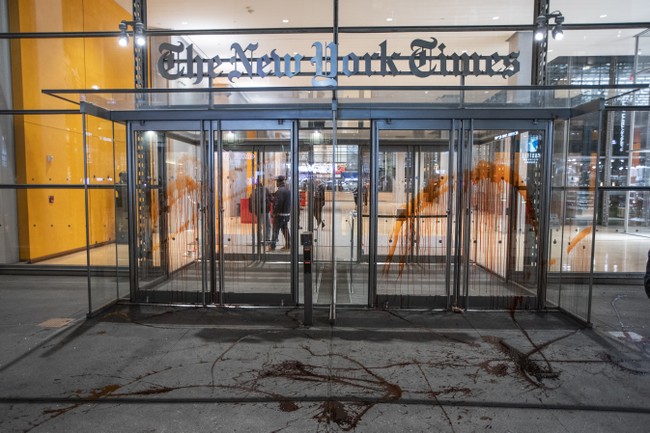The New York Times faced criticism from journalist Mary Katherine Ham regarding its coverage of the tragic shooting at a Catholic school in Minneapolis on March 14, 2024. Ham pointed out what she described as a misleading headline that failed to accurately represent the identity of the alleged shooter, Robert Westman. Westman, who had changed his name to Robin in 2019 and identified as trans, was implicated in the shooting that left the community in shock.
Ham’s critique highlighted broader concerns about journalistic integrity and the media’s role in shaping public perception. She argued that the coverage focused disproportionately on Westman’s gender identity while neglecting crucial details about his mental health and background. In her view, such omissions reflect a troubling trend in journalism where the political implications of a story take precedence over factual reporting.
The shooter had expressed feelings of distress about his identity, stating he was “tired of being trans” and wished he had not undergone gender affirmation processes. Ham emphasized that these statements should be part of the narrative surrounding the incident, suggesting that they provide context to Westman’s actions.
In response to the New York Times, Ham asserted that the publication is more concerned with maintaining a political narrative than with delivering the truth. She described this approach as “anti-journalism,” arguing that it undermines public trust in the media. Ham’s remarks resonate with a growing sentiment among critics who believe that many media outlets prioritize ideological alignment over balanced reporting.
The incident has sparked significant discussion about the responsibilities of journalists in reporting sensitive topics, especially those involving mental health and identity. Critics argue that failing to address these issues comprehensively can lead to misinformation and exacerbate societal divides.
Ham’s perspective reflects a larger debate about the role of media in contemporary society. As the landscape of journalism evolves, the challenge remains for outlets to balance the representation of individual identities with the necessity of accurate and thorough reporting.
This situation underscores the need for ongoing dialogue about media ethics and the implications of language used in reporting. Observers are watching closely to see how major news organizations will navigate these complex issues in the future.
